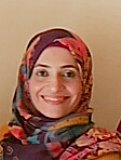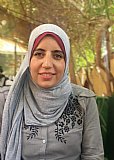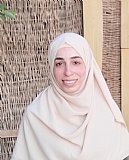Introduction
The Arabic language, with its rich history and diverse cultural roots, is spoken by millions of people across the globe. Spanning an expansive region, the language has given rise to numerous distinct dialects that reflect the vibrant tapestry of the Arab world. From the Maghreb to the Levant, and from the Gulf to the Arabian Peninsula, each Arabic dialect carries its own unique characteristics, vocabulary, and nuances. This post aims to shed light on the various Arabic dialects, showcasing their diversity and importance in fostering regional identity and cultural expression.
The Maghrebi Dialects:
Located in North Africa, the Maghreb is home to dialects such as Moroccan Arabic (Darija), Tunisian Arabic, and Algerian Arabic. These dialects bear influences from Berber, French, and Spanish, owing to the region's historical interactions. Maghrebi dialects are characterized by their distinctive pronunciation, phonetic shifts, and vocabulary. Despite their differences, they share common linguistic features, connecting the people of the Maghreb through a shared linguistic identity.
The Levantine Dialects:
In the Levant, encompassing countries like Lebanon, Syria, Jordan, and Palestine, the Levantine dialects flourish. Levantine Arabic exhibits significant variations among regions, but the spoken language unifies the Levantine population. Its phonetic changes, unique vocabulary, and occasional borrowings from neighboring languages contribute to its charm and character. Levantine dialects have also been enriched by literary and poetic traditions, leaving a lasting impact on Arabic literature.
The Gulf Dialects:
Stretching along the Arabian Gulf, the Gulf dialects encompass Bahrain, Kuwait, Qatar, Oman, Saudi Arabia, and the United Arab Emirates. These dialects, also known as Khaliji dialects, have distinct phonetic features, grammar structures, and vocabulary. The influence of Bedouin heritage, Persian, and Indian languages has shaped the dialects in this region. With the Gulf states' economic prominence and cultural impact, Gulf Arabic dialects have gained recognition and are widely understood throughout the Arab world.
The Egyptian Dialect:
Egyptian Arabic, known as Masri, is one of the most widely understood and influential dialects in the Arab world. Its significance stems from Egypt's historical and cultural prominence, coupled with its booming film and television industry. Egyptian Arabic is distinct, with its unique pronunciation, idiomatic expressions, and distinctive slang. Due to its widespread use in media, the Egyptian dialect has become a lingua franca for many Arab communities, transcending borders and fostering a shared cultural understanding.
The Iraqi and Levantine Mashriqi Dialects:
The dialects of Iraq and the Mashriqi region, which includes Syria, Jordan, and Palestine, share certain similarities but also have distinct characteristics. Iraqi Arabic, influenced by ancient Mesopotamian civilizations, has its own set of vocabulary and grammar rules. The Mashriqi dialects exhibit Levantine influences but maintain their individuality, offering a reflection of the unique cultural fabric of the region.
The different Arabic dialects represent the linguistic and cultural diversity of the Arab world. These dialects, although mutually intelligible to varying degrees, provide a sense of identity, heritage, and regional pride. While Modern Standard Arabic serves as the written and formal language of the Arab world, it is the dialects that bring life and vibrancy to daily conversations, music, literature, and entertainment. Embracing the richness and diversity of Arabic dialects fosters a deeper appreciation for the cultural mosaic that exists within the Arab world and encourages cross-cultural understanding and connection.
Strategies to Practice Speaking Arabic
Arabic dialects are not only linguistically diverse but also culturally enriching. Mastering the art of speaking different Arabic dialects opens doors to deeper cultural understanding and meaningful connections. So let's explores effective strategies to practice speaking various Arabic dialects which will help language learners navigate the intricacies of pronunciation, vocabulary, and cultural nuances.
- Immerse Yourself in Native Content: To truly embrace an Arabic dialect, immerse yourself in authentic native content such as movies, TV shows, music, and podcasts. Engaging with these resources exposes you to the natural rhythms, intonations, and idiomatic expressions specific to each dialect. By actively listening and imitating native speakers, you can develop a more natural and accurate pronunciation.
- Arabic Language Exchange Programs and Tutors: Participating in language exchange programs or finding a language tutor who is a native speaker of the dialect you wish to learn is invaluable. Regular conversations with native speakers provide opportunities to practice your speaking skills, receive immediate feedback, and gain insights into the cultural context behind the language. Utilize online platforms, language exchange apps, or local language institutes to connect with suitable language partners or tutors.
- Join Online Communities and Discussion Forums: Engaging in online Arabic language communities and discussion forums offers a platform to practice your speaking skills. Seek out forums where learners and native speakers come together to discuss various aspects of the dialects. Share your thoughts, ask questions, and engage in conversations. By actively participating in these communities, you can receive feedback, learn from others, and build your confidence in speaking the dialect.
- Visit Arabic-Speaking Countries or Communities: If feasible, immerse yourself in an Arabic-speaking environment by traveling to or residing in a country where your target dialect is spoken. By interacting with locals and being exposed to everyday conversations, you can improve your listening comprehension, practice speaking, and develop an ear for the specific accent and vocabulary of the region. Engaging with the local culture and forging connections with native speakers will enhance your understanding and fluency.
- Role Play and Language Practice Groups: Organize or join language practice groups with fellow learners or native speakers interested in exchanging language skills. Engage in role-playing activities where participants take on different personas and scenarios, encouraging dialogue in the dialects being practiced. This interactive approach provides a supportive environment to experiment with vocabulary, expressions, and cultural subtleties.
- Record and Listen to Yourself: Recording your own voice while speaking the dialect allows you to identify areas for improvement and track your progress. Listen to the recordings critically, focusing on pronunciation, intonation, and fluency. Compare your recordings with native speakers to enhance your accuracy and adjust your speech accordingly. Self-assessment through recording can be a powerful tool for refining your language skills.
- Regular Practice and Consistency: Language learning requires dedication and consistency. Set aside regular time each day or week to practice speaking the dialects you are studying. Consistency in practicing vocabulary, pronunciation drills, and conversation exercises helps solidify your language skills and gradually builds your confidence in speaking the dialect.
Conclusion
Practicing and speaking different Arabic dialects is an enriching journey that connects you with diverse cultures and people. By immersing yourself in native content, engaging with language exchange partners and tutors, participating in online communities, visiting Arabic-speaking regions, and recording and listening to your own voice, you can refine your pronunciation, expand your vocabulary, and embrace the cultural nuances of each dialect. With consistent practice and a willingness to step outside your comfort zone, you can navigate the melodious tapestry of Arabic dialects and open doors to meaningful linguistic and cultural experiences.















